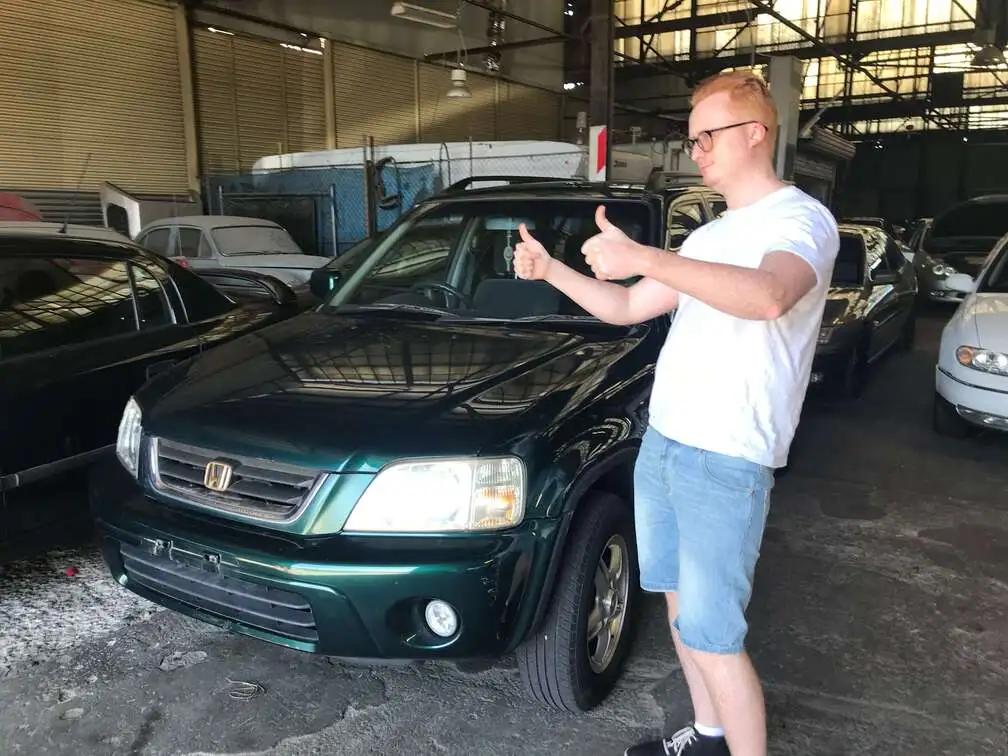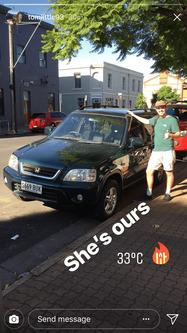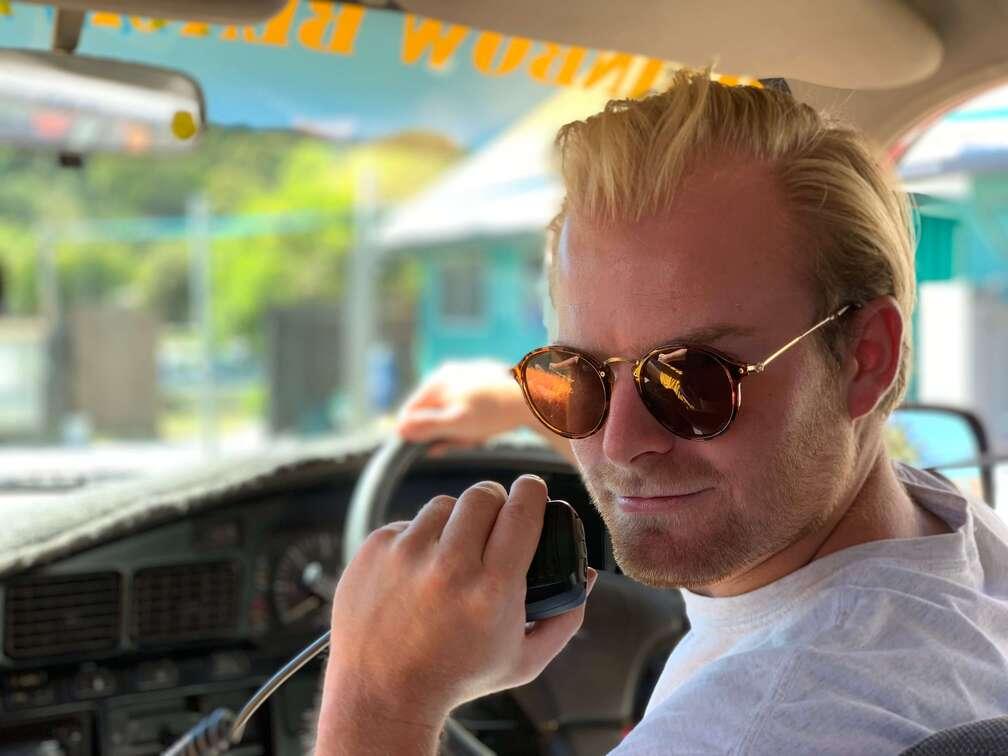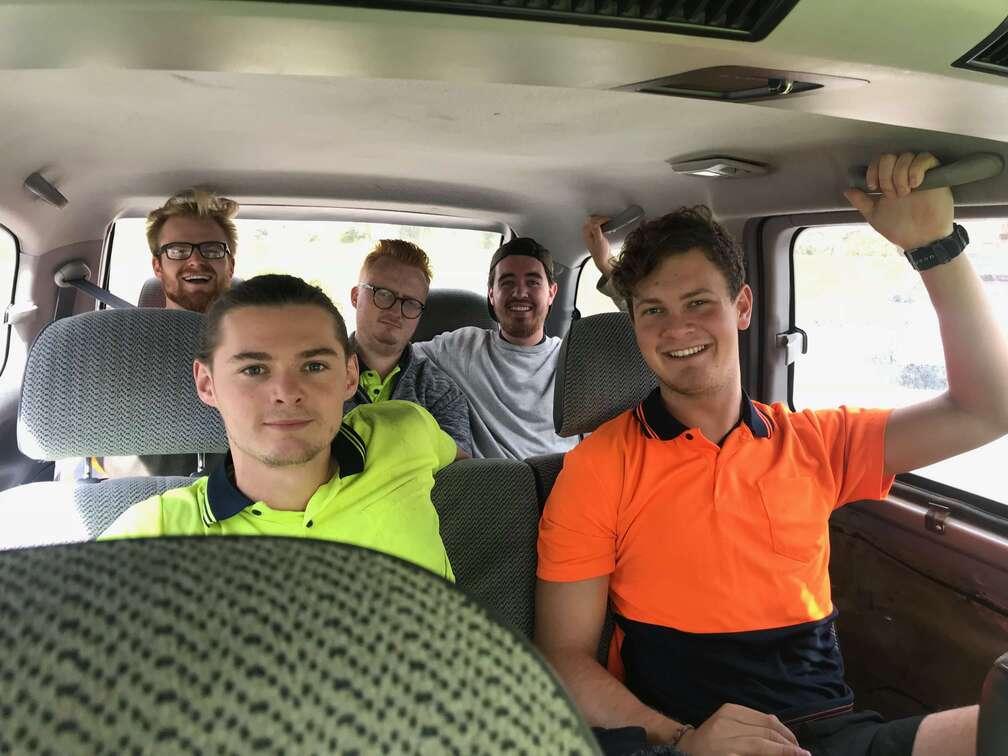
Without a doubt one of the best decisions I made when coming to Australia was to buy a car, yes, it costs money, can be hassle, takes up time and effort but seriously it’s all worth it! If you have the money to spend and are willing to put in the effort, it can revolutionise your experience Down Under, let me explain why and give you some tips to help you on your way.
If you want to see all of Australia far and wide then what can compare to doing it all under your own steam with the freedom and fun of your own vehicle! Who doesn’t love a road trip? You can fly to a lot of places, but that often works out being expensive and then you end up missing half the experience of travelling in Australia. I found lots of the good times and excitement was in the journey! The Australians have got one of the worst train networks I have ever seen, it’s practically non-existent as it seems to be more expensive than flying and slower than driving! The only remaining option is a long-distance bus or coach journey, but where’s the freedom and fun in that? I would say a bus/coach is only worth it if you’re in Australia for a short amount of time and looking to book on to an all-inclusive trip up the east coast. But what you see and what you get for the cost of these tours is not comparable to doing it in your own car, a used car is cheaper than you might think.

I’ve lived in most corners of Australia, metropolitan or rural, and my car has been with me every step of the way. Every time I want to move places I just pack the car up and go. The benefits of a car are endless, you’re not restricted to a suitcase every time you go somewhere new, all the extra gear you acquire on your travels can be kept until when you need it again. I’m talking tents, camping chairs, duvets, pillows, TV’s, whatever it is it can come along for the ride with you and if you’re lucky your travel companions too.
Having some mates to split the cost of a car with is the most ideal situation to be in, then an investment of $1000 each when there is 3 or 4 of you can get you a pretty decent ride. Then all the running costs such as fuel, insurance and registration can be split as well making it easier for everyone. Then the next thing you find out is that an 8 hour drive is a breeze if there’s a few of you sharing the load.
In order for your newest 4-wheeled prized possession to be road legal it requires to be registered and at least have third party insurance, let me explain. The registration is what relates the car to the owner and to the state it is licensed, it costs in the region of $195 every 3 months however that can vary depending on the type of vehicle and the term of registration. Third party insurance is necessary as a minimum, it basically means the cost of the damage to someone else’s vehicle is covered in the case of an accident that is your fault, and all you have to cover is an excess payment (often $250 or $500 depending on your insurer and insurance plan). This is a legal requirement so if you’re in an accident that isn’t your fault the cost of the repairs on your car will be covered by the other individual’s insurance. This is to protect drivers on the road as repair costs can often escalate to much more than people can afford. There are many insurers across Australia, but it is important to do your research as some only cover the car in the state of registration, which is no good if you plan on travelling far and wide. From experience AAMI is great for all-round value (approx. $30/month) and you are covered country wide.

The Royal Automobile Association (RAA) is the national emergency breakdown service, and is highly recommended, if your car (as trusty as it may seem) has an issue in the middle of The Outback (or anywhere) it can be very expensive to get it towed back to a recovery centre. To avoid these costs then you need to be a member of the RAA, basic plans are in the region of $10-$15/month and is definitely worth it, especially if you’re looking to buy a car on the cheap!
Now, when it comes to buying a used car in Australia the options are limitless so here’s a few things to look out for and to bear in mind when on the search. A reasonable budget for initial cost I would say is somewhere in the $2k-$5k price bracket. This way you should avoid a car that needs to you take out a mortgage to pay for, and also avoid one that will fall apart 500m down the road. I know someone that paid $700 for a car and it broke down within an hour of driving, true story! However, you could spend $1k and it be your dream car and it lasts another lifetime, that is just the lottery of buying used cars.
I’m not a mechanic and if you’re reading this I take it neither are you! But before buying a car try to give it a good look over, inside, outside and underneath, ask to see details of recent services as this will give the best indication of what state the car is in or how well it has been looked after by previous owners. To fit into the budget I mentioned, you’re likely to be looking at cars with a very large number on the odometer, 240,000km to 310,000km is probably the sweet spot, much over 350,000km then inevitably the car won’t have much more to give! Take it for a test drive, check to see if the electrics work, the brakes feel good, listen to the engine (keep the radio off) as this is the best way to see what you’re getting for your money. If you have a mechanic mate then great, take them along to view the car, but unfortunately this is all the help I can give! From experience I have had great success/value for money when buying Japanese cars (Honda and Subaru more specifically) that are from 1996-2003. A top tip is to keep an eye out when on the road to see what the older cars are you still see regularly as these will be the trusty and reliable ones.

I can offer a better insight into what sort of car/vehicle you should get on your travels around Australia. 4WD can come in handy but is definitely not essential, 4WD’s often offer lots of space which is more essential as you can then fill it with people and luggage! People carrier’s and estate cars are often great for having lots of space, otherwise keep an eye out for a car with a roof rack as very useful for gaining extra space. If you’re feeling really creative and want to go full nomad then the converted minivans are the one, this way your travel and accommodation is sorted wherever you go.
Lastly, keep an eye on backpacker Facebook groups as there is often people leaving Australia and looking to sell on their much-loved cars and minivans, just keep in mind what I’ve mentioned previously. Now enjoy the travelling with all the freedom you desire!
Ready to Start Your Journey?
Join thousands of backpackers who have successfully completed their 88 days and extended their Australian adventure